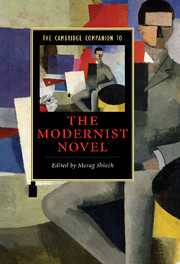4 - Consciousness as a stream
Published online by Cambridge University Press: 28 July 2007
Summary
In 1911 the French philosopher Henri Bergson wrote an impassioned preface to a new edition of William James’s Pragmatism (1907). James, the distinguished American psychologist, had recently died, and Bergson paid homage, in his preface, to the mind with which he had felt such a strong affinity. He stressed the centrality of redundancy and superabundancy to James’s vision of reality: 'While our motto is Exactly what is necessary, nature’s motto is More than is necessary - too much of this, too much of that, too much of everything … Reality, as James sees it, is redundant and superabundant' (267).
Bergson then went on to draw an essentially literary analogy between traditional (pre-Jamesian) philosophy and the artifice of the stage play:
Between this reality and the one constructed by the philosophers, I believe he would have established the same relation as between the life we live every day and the life which actors portray in the evening on the stage. On the stage, each actor says and does only what has to be said and done; the scenes are clear-cut; the play has a beginning, a middle and an end; and everything is worked out as economically as possible with a view to an ending which will be happy or tragic. But in life, a multitude of useless things are said, many superfluous gestures made, there are no sharply-drawn situations (268).
- Type
- Chapter
- Information
- The Cambridge Companion to the Modernist Novel , pp. 65 - 81Publisher: Cambridge University PressPrint publication year: 2007
- 9
- Cited by



